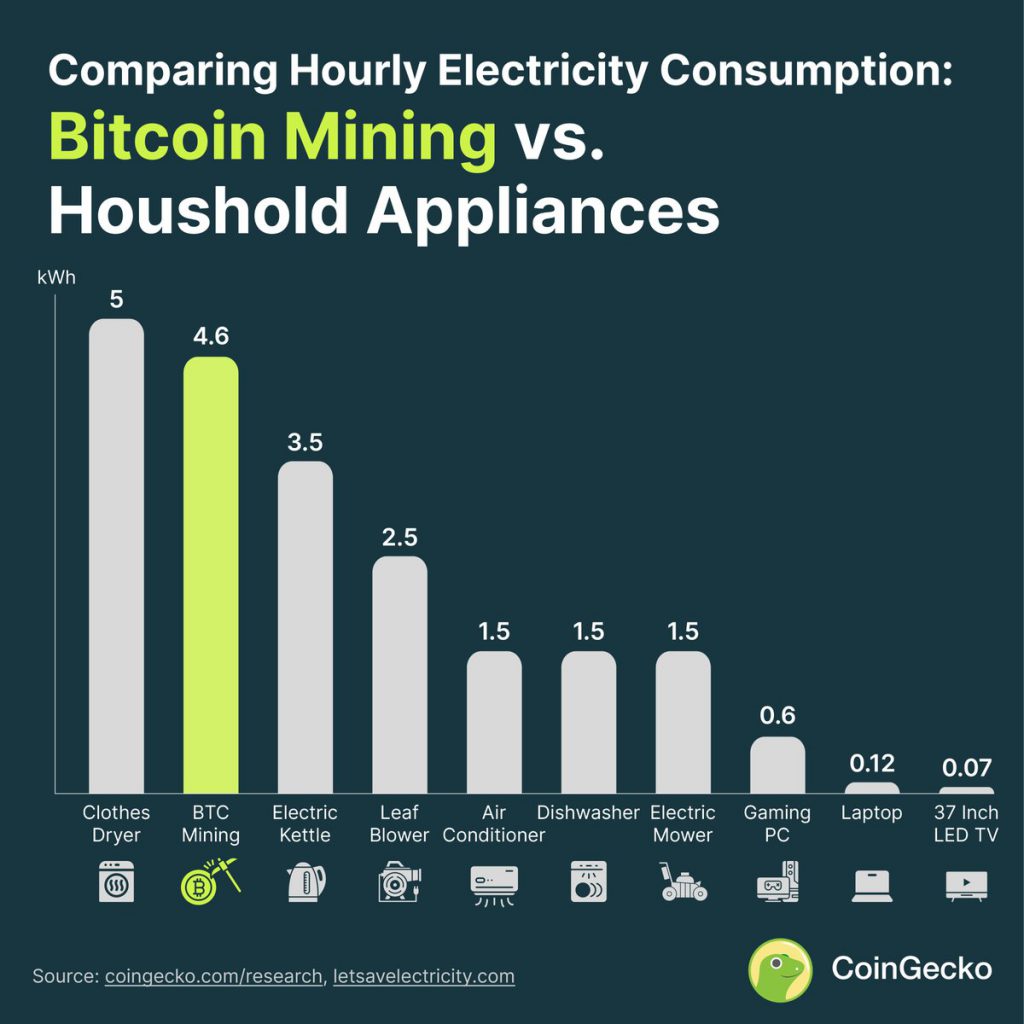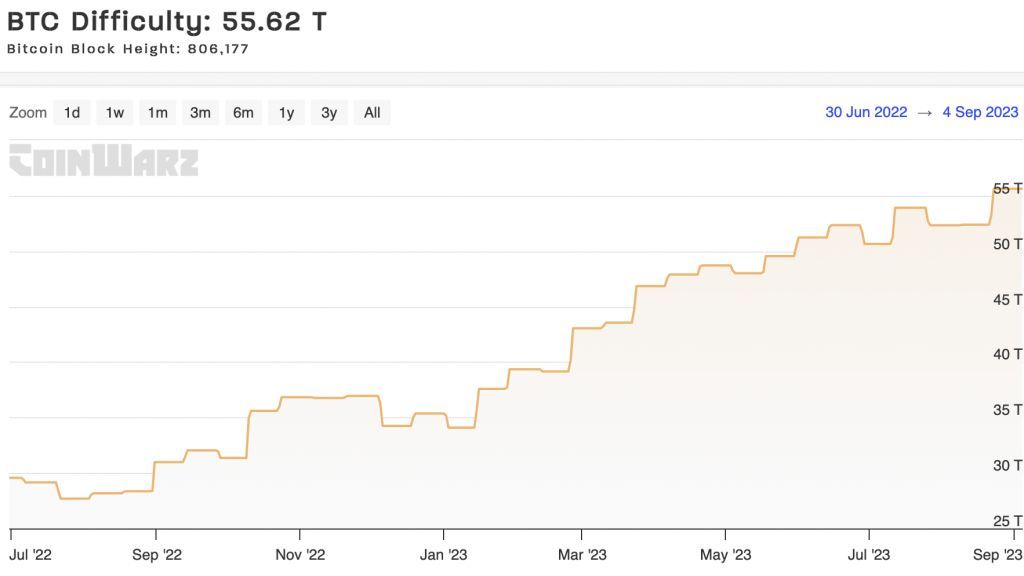Many individuals are being led astray by claims such as ‘Bitcoin consumes more energy than a small nation,’ or ‘Bitcoin’s carbon emissions dwarf those of a single Visa transaction by a millionfold.’ These kinds of statements often stoke the flames of this debate. However, a recent study reveals that mining one BTC is cheaper than a household activity.
As per data from Coingecko, the average cost of household electricity required to mine a single Bitcoin stands at $46,291. This marks a 35% rise when compared to the average daily price of 1 BTC in July 2023, which amounted to $30,090. Nevertheless, it’s essential to acknowledge that these figures can vary significantly across different geographical regions.
The energy consumption for mining one Bitcoin per hour may not be as easily distinguishable as anticipated, especially when compared to common household devices. Although the hourly electricity usage for Bitcoin mining exceeds that of a Gaming PC, an air conditioner, a leaf blower, and even an electric kettle, it’s important to highlight that drying clothes consumes considerably more electricity than Bitcoin mining. Drying clothes consumes a total of 5 kWh, while Bitcoin mining utilizes 4.6 kWh.

Is mining Bitcoin at home a good option?
Mining Bitcoin using a personal computer has lost its profitability due to various factors. A primary factor is the substantial increase in the mining difficulty level over the years. As the mining community grows with more participants, the difficulty level rises, rendering it increasingly challenging for individuals to mine Bitcoin and receive rewards.
Moreover, the utilization of dedicated mining hardware is a challenge to profitability in Bitcoin mining. ASICs are built for Bitcoin mining. It boasts significantly higher processing power compared to a standard home computer. They have the capability to mine BTC at a substantially faster pace than a typical household PC. Consequently, this creates a formidable barrier for individual miners to remain competitive.
Additionally, the majority of ASICs are acquired in bulk by large Bitcoin mining operations, leading to supply constraints and elevated costs for individual miners.

